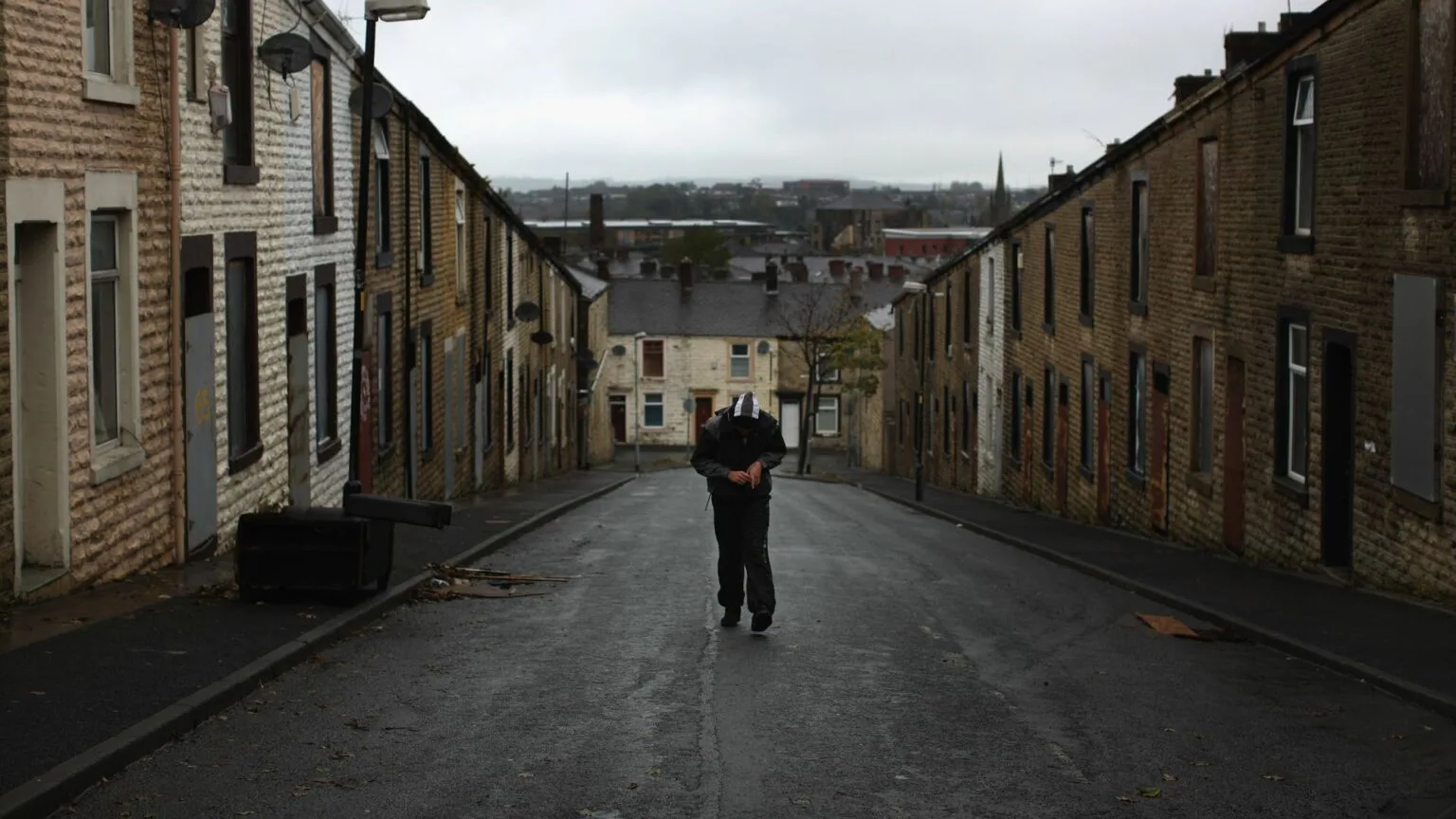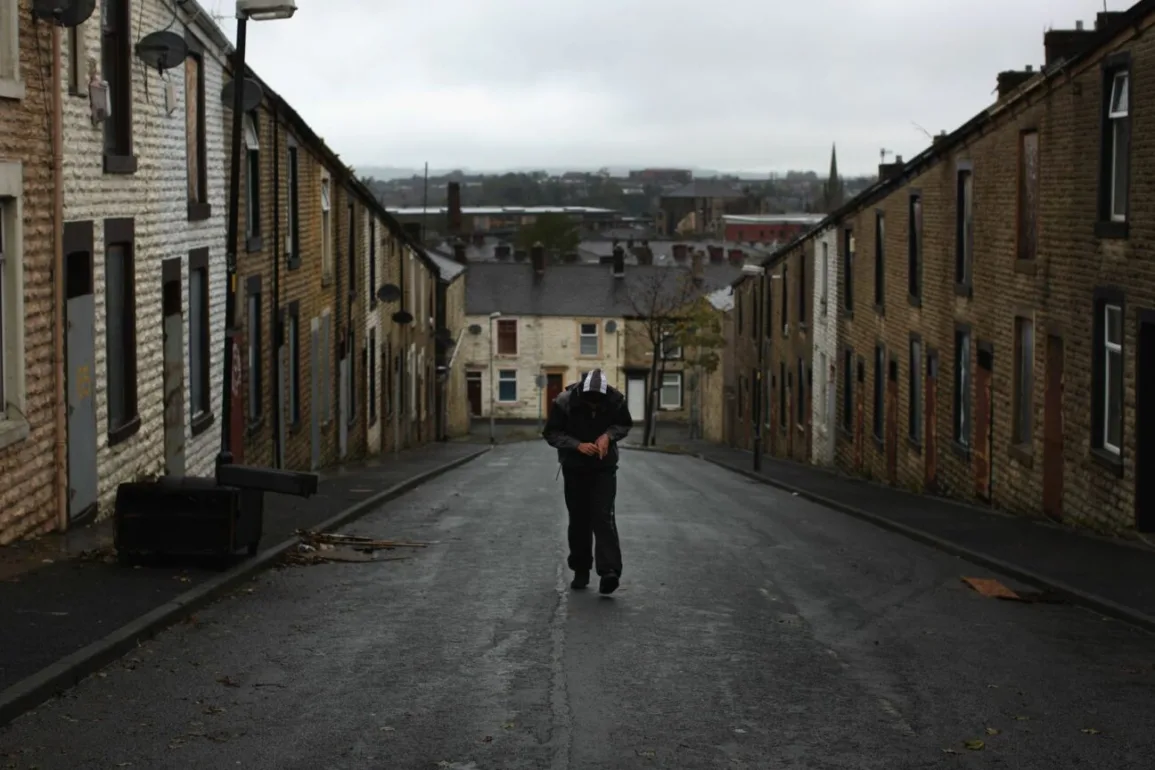
Official data published last week by the Department for Work and Pensions (DWP) tell a grim story of modern Britain.
The official UK unemployment figure of 1.3million, which is relatively low by recent historical standards, is only a small part of this story. The really significant figure is the huge additional number of working-age people whom the state deems incapable of working due to ill-health. This figure now sits at 2.8million, having risen by some 700,000 in the two years since the Covid pandemic. Furthermore, we’ve also learned that two-thirds of those citing ill-health as a reason for their inability to work say they are suffering specifically from mental-health problems, sometimes in combination with physical conditions. Given that 20,000 more benefits claimants citing mental ill-health are being added to the rolls each month, this proportion is only likely to grow.
These are shocking, deeply troubling statistics. Over four million people out of the UK’s 38million working-age citizens are currently outside the workforce. The Spectator, using extra data sources, puts the workless figure at a staggering 5.6million. But even the DWP’s smaller figure of more than four million means that well over 10 per cent of working-age adults in the UK are without gainful employment. What’s more, the vast majority of these adults haven’t been categorised as ‘jobseekers’. They’ve been categorised as incapacitated by some form of sickness. They’ve been deemed physically and – increasingly – mentally incapable of working. As a result, they are effectively being written off, decommissioned, damned to live out their lives on meagre state support.
Yes, there will be many among those three million workless adults who are suffering from debilitating mental and physical conditions. But there will also be many who are not. Many are claiming a personal independence payment (PIP) on the grounds that they feel too sad to complete daily tasks. And many more have been encouraged by our therapeutic culture to think of themselves as too depressed or anxious to take on employment, even if they lack any clear, diagnosed mental illness. We, as a society, are failing these people. We are condemning them to a lifetime of state dependency.
The huge number of workless people should be provoking outrage. It should be prompting demands for more and better jobs, and a route into work for those who have become workless and isolated but are still capable of contributing to society. But on the right and especially the left, they barely seem to raise an eyebrow.
The growth of this large, workless population is not a new phenomenon. It is, in large part, a legacy of the Tory government’s response to the recession of the early 1980s. Faced by rising unemployment, Margaret Thatcher’s government attempted to massage the figures downwards, shifting people off the dole and on to what were then known as sickness and invalidity benefits.
Academics from the late 1980s onwards would often refer to those categorised as too sick to work as the ‘hidden unemployed’. This is not to say that many of those being reclassified as ‘sick’ weren’t suffering from injuries or chronic conditions. And they certainly weren’t pretending to be ill. But it’s clear that if there had been jobs available in 1980s Britain, they would have taken them. It is no coincidence that there was a sharp rise in those claiming sickness and invalidity benefits in precisely those working-class areas that had been ravaged by deindustrialisation, from dying shipyards and dockyards to shut-down colliery towns. (Indeed, incapacity claimants today are similarly concentrated in the most economically stricken areas of the country.)
This reclassification of unemployment as incapacity was more than just a cynical attempt to fiddle the figures. It was also part of the broader attempt to de-politicise economic, class-based conflicts. An attempt to take the heat out of struggles against mass redundancies. An attempt, that is, to turn unemployment from an object of anger and political action into a naturally occurring phenomenon.
In this regard, New Labour took over where the Tories left off. Official unemployment figures continued to fall during the late 1990s and 2000s. Yet, at the same time, the number of those on incapacity benefits soared to a peak of over 2.7million in the early 2000s. And very few raised so much as a murmur of class-based discontent. New Labour had achieved what Thatcher’s Tories could only have dreamed of. Unemployment had been naturalised. The inability to work had been turned into something that simply and inexorably afflicts a section of the populace, just as certain illnesses and conditions do.
Today, in the shadow of the Covid lockdowns, the numbers of those categorised as incapable of working has surpassed even the high water mark of the early 2000s, to stand at nearly three million. But it’s not just the sheer number of people now effectively unemployed that is striking. It’s the fact that so many have been signed off explicitly on mental-health grounds. And the mental-health problems cited as grounds for not working are increasingly not those we would traditionally understand as severe mental illnesses – that is, conditions like schizophrenia that impair an individual’s ability to function on the most basic level. No, they’re invariably things like ‘anxiety’ – everyday emotions that have been rebranded as psychiatric disorders or syndromes.
This is a triumph of today’s therapeutic culture. Over the course of less than four decades, being unable to find work has been turned from a structural, economic failing into a question of an individual’s state of mind.
In response, there have been no calls for more and better jobs. No marches for the right to work. No proffered visions of a society that provides purposeful and fulfilling jobs. It was once understood that even those who cannot work full time, or may struggle with certain tasks, can benefit from some form of gainful employment. But little effort is now made to find things for them to do now.
Instead, from across the political spectrum, politicians and pundits have blithely called for more mental-health support. More treatment. More therapy. These millions of workless people are viewed almost entirely as patients, not as potentially productive members of society.
This will only make the problem worse. People obviously suffer psychologically from not working. They not only lose income, but also a sense of dignity, purpose and often social solidarity, too. As a result, many no doubt do feel unhappy, discontented or anxious. But these are symptoms of unemployment, not its cause. Focussing on tackling the mental health of the unemployed will only encourage the out-of-work to see themselves as ill. In doing so, it will reinforce a sense of incapacity.
If we’re serious about tackling the phenomenon of worklessness, we need a radically new approach. We need to focus on economic renewal, and providing full and gainful employment. The sooner we do so, the better everyone will start to feel.
Tim Black is a spiked columnist.


